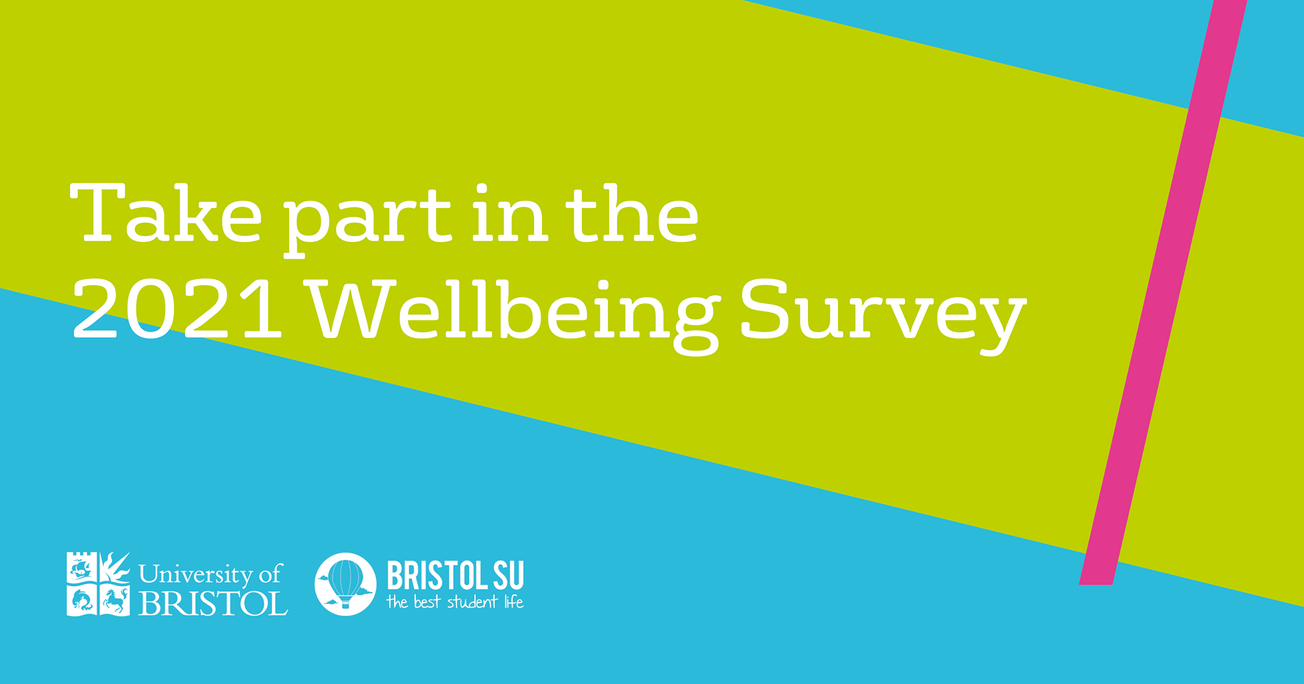By Milan Perera, Second Year English and Community Engagement
In light of this year's publication, Epigram takes a deep-dive into the results of 2021's Student Wellbeing Survey, and what it means for the university.
The much-anticipated Student Wellbeing Survey for 2021 is here at last. This detailed document sheds some much needed light on the 2021 student experience against the backdrop of Covid-19, which inevitably affected all facets of student life, ranging from lectures to living arrangements. The first Student Wellbeing report was compiled back in 2018 and the current survey for 2021 was heavily dictated by the circumstances surrounding the onset of Covid-19.
The Student Wellbeing Survey for 2021 has found that 47 per cent of Bristol students screened positive for ‘moderate’ to ‘severe’ symptoms of depression, as opposed to 45 per cent found in the survey in 2019 (the last survey prior to Covid-19). The levels of anxiety too marked an increase this year, with 41 per cent students experiencing moderate/severe symptoms, compared to 35 per cent in 2019.
'47 per cent of Bristol students screened positive for ‘moderate’ to ‘severe’ symptoms of depression'
The most startling finding in the 2021 survey is the increasing rates of depression and anxiety among Black Asian and Minority Ethnic (BAME) students compared to their White peers. Furthermore, the survey found that the mental health disparity seen among Black, Asian and Minority Ethnic students not only significantly reduced, but also reversed; 56 per cent in 2019 to 45 per cent. In the meantime, their White peers showed a slight increase from 43 per cent to 47 per cent during the same time frame. However, we must dig deeper beyond these statistics to find out the areas of Student Wellbeing that could have performed better to improve the overall services offered by the University.
The survey ran for nine weeks from 26 April to 30 June 2021. It was an anonymous questionnaire which was sent to all undergraduates and postgraduates whose accumulative number read 29,536.
The Covid-19 Survey too used the previously used indexes for depression and anxiety; the PHQ-9(Patient Depression Questionnaire), GAD-7(anxiety), and the Warwick and Edinburgh Mental Wellbeing Scale (WEMWBS) to test for symptoms of depression.
All three scales asked about aspects of mental health and wellbeing in weeks prior to the completion of the questionnaire. Some were routine questions such as those on loneliness, financial stress, and the tendency to seek support. But, due to the unmistakable and overarching impact of Covid-19, new sets of questions were also added, exploring the themes of living arrangements, health risk, bereavement, and the transition to online learning.
Undoubtedly, the most seismic shift to student life with the onset of Covid-19, was the replacement of classroom teaching with online platforms. Due to the lockdown that was mandated, student activities were halted abruptly and the warm centre around which friendships and relationships were formed was taken off. Almost one in four (23 per cent) students said that they often or always felt lonely, as opposed to 24 per cent in 2020 survey. This percentage is considerably higher than the national average for 16-24 year olds which stands at 7 per cent.
'Almost one in four (23 per cent) students said that they often or always felt lonely, as opposed to 24 per cent in 2020 survey.'
To expand on these statistics, Epigram had the pleasure of meeting up with the Student Living Officer, Ruth Day, whose campaigning over fairer student accommodation, drug harm reduction and support for self-isolating students has not gone unnoticed. Since the 2018 Wellbeing Survey, levels of depression and anxiety showed a downward trend save for the 2021 figures. When asked about how they would interpret these findings, especially against the backdrop of a global pandemic, Ruth expressed that ‘since 2018, Student Wellbeing services have evolved significantly, as the services up to that point were pretty much ‘single-fit’ for everyone. The reality is every inquiry is unique and specific. Sometimes all what is needed is a single session of counselling and on other occasions the needs are far more complex which require expert intervention.’
According to Ruth, as opposed to the previous system, the current operation is user friendly, as a point of access is all that is required is to request participation in the ‘Wellbeing Support Form’ and fill the simple questionnaire. Depending on the nature of the inquiry, the Wellbeing advisers will put the prospective student in touch with the appropriate specialist services that are better equipped for the inquiry. ResiLife offers support for students living in university accommodation across campus through both email and phone contact, as well as in-person appointments.
According to the survey, one in four students reported experiencing eating disorders since starting university. Although this figure may appear high, on a separate study of 6000 people in the Southwest, it was reported that 33 per cent of 16 year-old females had experienced an eating disorder in the last year. When asked of the swiftness of response for a “port of call” inquiry regarding eating disorders, Ruth commented that, ‘even the most complex cases of eating disorders are responded to within two weeks as opposed to the standard waiting list at the local NHS services.’
Despite the overall downward trend since 2018, those student groups that were originally recognised to be at particular risk still demonstrate higher levels of depression and anxiety. The depression levels among female respondents were far more prevalent than their male counterparts (49 percent compared to 44 per cent.) The symptoms of depression were still also higher among LGBTQ+ students (58 per cent) and gender minority students (76 per cent).
'The depression levels among female respondents were far more prevalent than their male counterparts'
No doubt, it is encouraging to see a dip in the statistics regarding the levels of depression among LGBTQ+ students compared with the 2019 survey, which showed a result of a staggering 63 per cent. When shown these figures, Ruth acknowledged that although it is an encouraging trend, there is more to be done to level up the disparity. Epigram enquired about the measures that are in place to combat this issue; ‘Two transgender officers will be joining the Student Wellbeing Services soon’, Ruth said, adding that, ‘they are equipped with a specific set of skills to make the services more accessible for trans students.’ Furthermore, they added that there are special training programmes available to non-academic staff to familiarise themselves with LGBTQ+ issues. ‘Sometimes using the correct pronoun makes all the difference’ Ruth highlighted.
‘Two transgender officers will be joining the Student Wellbeing Services soon... they are equipped with a specific set of skills to make the services more accessible for trans students.’
Levels of depression among Black, Asian and Minority Ethnic students fell from 56 per cent (prior to the pandemic) to 45 per cent. Dedicated community- based charities such as Nilaari have been working tirelessly to address the disparity of high levels of mental health issues among Black, Asian and Minority Ethnic students in Bristol. Organisations such as Nilaari have been the perfect back up to for university-led support services.
The survey also indicated that more students found the support services were helpful compared to previous years ( 43 per cent in 2021 v 37 per cent in 2020). Although the Student Wellbeing Service can feel encouraged by these findings, they are far from providing a perfect service for all students. However, they are determined to improve upon their current provisions and make mental health at University a top priority for looking after all students.
Featured Image: Facebook | University of Bristol








